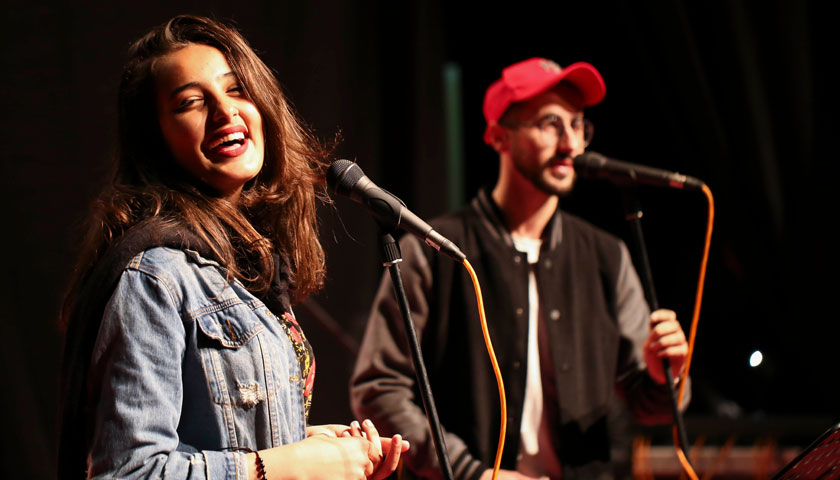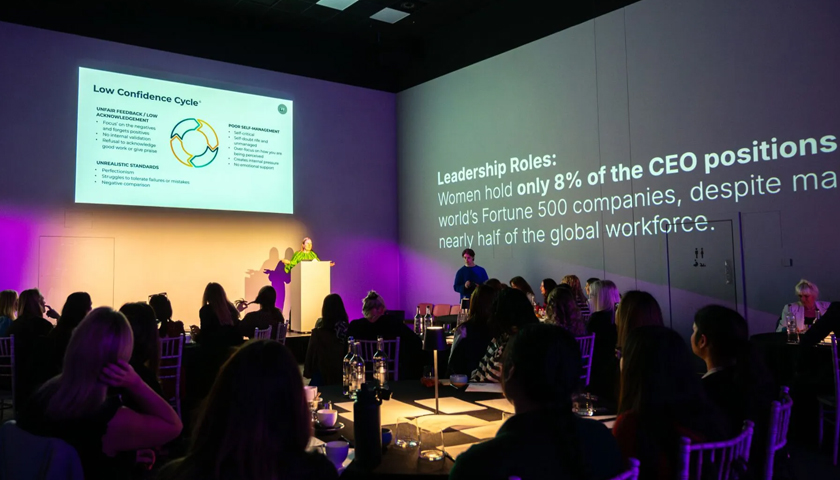Within the joint UN and EU campaign of 16 Days of Activism against Gender-Based Violence – Hear Me Too: Voices Against Violence and through its EU-funded project “NET-MED”, UNESCO supported the theatre play “Black Light”, produced by the Gaza-based Theatre Day Productions (TDP) and performed through an all-female cast on the stage of the theatre in Gaza.
“Black Light” is a new women production of TDP, based on storytelling techniques. The play is performed by the team of seven talented women, mostly youth. All seven women are leaders in cultural projects of TDP, initiatives for positive transformation of the community.
“Years ago, it was unacceptable for women to perform on stage. Men had to act in female roles. One time, I was in the role of the young woman Salwa and you can’t imagine how much filth I heard to my address from men in the audience. It made me think: what if I were a woman? What do women on stage feel when they hear all that filth from men? For many years by now, we have been working hard to change. Drama and storytelling are our ways to change the culture of community. Today, we have women on stage: they perform, they share their stories and they lead discussions with audience of other women and men. Today, they are who lead to change. ” said Mohammed AlHessi, Artistic Manager.
Every story is narrated in different episodes. Episode after episode, all the fragments are masterfully crafted into a complete mosaic of 7 real-life stories by women characters: they are teenagers; they are engaged or not-yet engaged; they are getting married or did not get married yet; the stories are questioning what they want and how they see their lives. During the storytelling show, audiences are constantly curious to know what will happen next to each of the characters. The storytelling is intertwined with interesting images when the storytellers move on stage and compose visual scenery while playing with theatre props and elements in the stenography. Images such as a hanging dress (“jalabiya”) with a woman’s feet and hands but without a head; a ‘choking-tight’ chili-pepper necklace around the neck of an actress are visual keys that help audiences understand deeply-hidden feelings of the characters.
The stories shared by the actresses touch on the following themes and issues: the preference of a male over a female child; divorce, seen as the fault of women, divorced women are shamed and discriminated against; unmarried women suffering from damaging stereotypes; traditional marriage: are women happy to be brides on a ‘marriage market?’ Relationships in marriage: treason of the husband, how to react if you feel you are exchanged for another woman?; what when your in-laws come between you and your husband; women and their children: how does it feel to have a baby inside you? Pain when kids are taken away from you once divorced.
“I am a filmmaker. My first experience was at university when I was working on my graduation film project. I decided that my film would be about us – women. As soon as I started, people started speaking: “Just look! How comes that a young woman goes out daily?! She walks, speaks and laughs in the company of young men?! She comes back home late every evening?!” I did not respond to anybody. I kept going forward: why should I stop if I am right with what I do, if I have the mission and the goal!?” said Sahar F., Filmmaker
Many local women live in darkness, in “the black light” of too much violence and oppression. But even though they are in darkness, they have a voice and they can make change happen.



